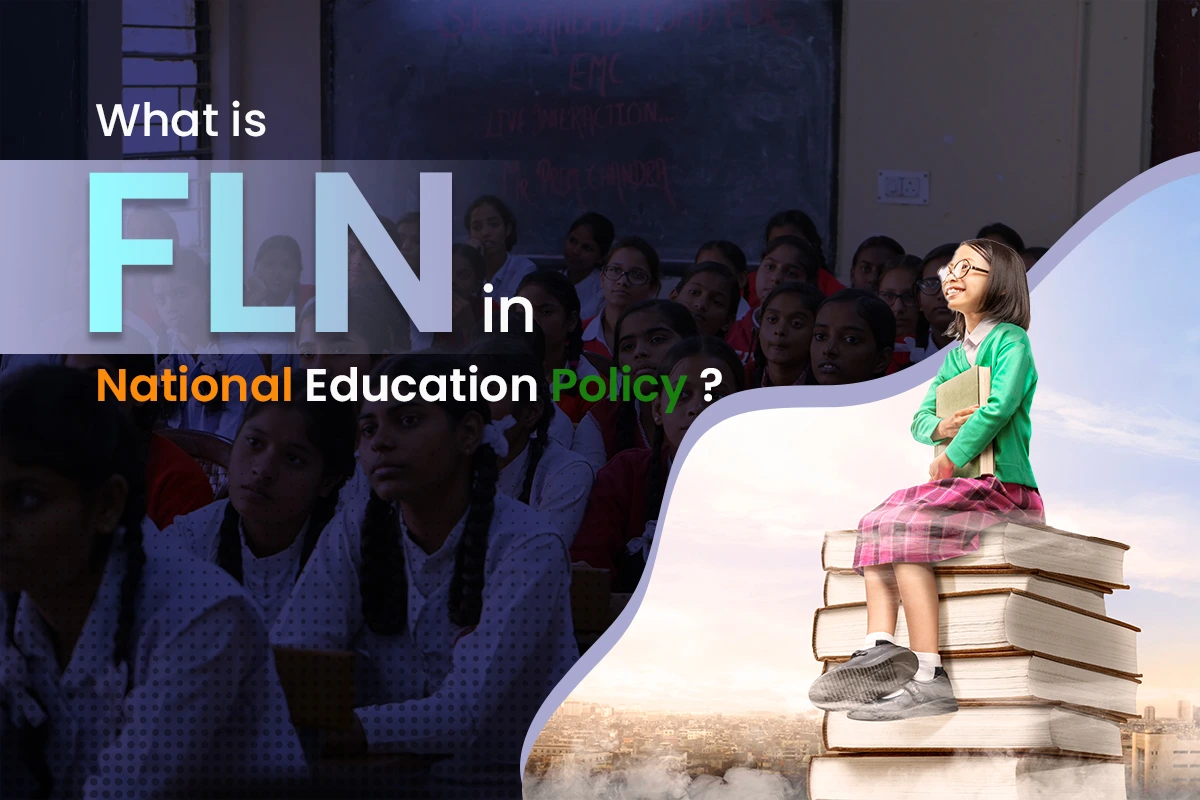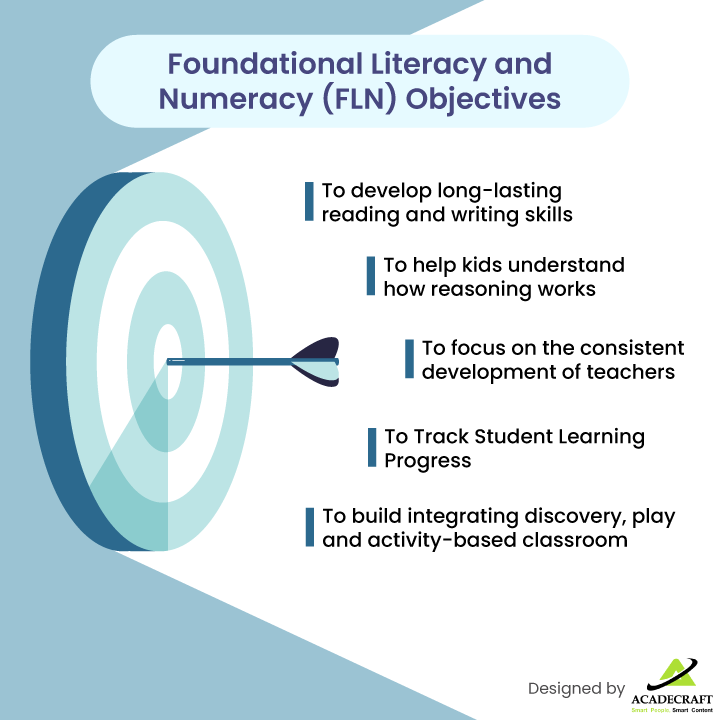
Foundational Literacy and Numeracy (FLN) is an educational framework for holistic growth and development in the child's early years (0-8 years). FLN in National Education Policy has been identified as a fundamental priority and given due importance. It focuses on developing skills like communication, problem-solving, and critical thinking. This framework helps children to understand their environment better and develop self-confidence.
Arguments favoring FLN claim that these skills are a foundation and a crucial requirement for all future education and lifelong learning. These skills include reading, writing, and performing basic mathematical operations.
The National Education Policy notes the significance of early learning. It asserts, "Our highest priority is to achieve universal foundational literacy and numeracy (FLN) in primary school by 2025." The remaining part of the policy will be relatively unimportant for such a big section of students unless the most fundamental learning (foundational reading, writing, and arithmetic) is first achieved.
Today, there is widespread concern in the United States about children's poor learning levels at various stages of their schooling. According to NEP 2020, a large proportion of students currently in elementary school – estimated to be over five crore – have not yet achieved Foundational Literacy and Numeracy. Children in India who are first-generation learners lack a home environment conducive to literacy and numeracy.
The NIPUN-Bharat program was launched in 2021 to achieve universal literacy and numeracy for Class 3 children by 2026-27. Under the umbrella of the Centre Sponsored Scheme of Samagra Shiksha, it proposed the creation of a five-tier implementation mechanism at the level of the National, State, District, and Block schools in each State and UT.
FLN under NIPUN Bharat Mission focuses on developing Foundational Literacy and Numeracy (FLN) skills in every child by class 3rd. By emphasizing FLN, the National Education Policy seeks to ensure that children gain knowledge and develop the necessary skills to make the most of their educational experiences.
As a main component of NEP 2020, the Ministry of Education, Govt. of India has launched NIPUN Bharat Mission for FLN.
The primary aim of FLN is to ensure that every child is provided with a joyful learning environment. Children could be exposed to stories, play, rhymes, activities, art and craft, local craft, and music to build strong foundations for lifelong learning through stories, play, rhymes, and activities.
For example, through stories, children can learn about the world around them and develop a sense of empathy and understanding of different cultures.
This process can help children build on their language and literacy skills and stimulate their creativity and imagination. Additionally, engaging in creative activities can also help children to develop fine motor skills, as well as problem-solving strategies. Storytelling can be a valuable tool in nurturing and developing a child's learning and development.
In the mission, learning outcomes are summarized in a spiraling and refined manner from preschool to 3rd grade, aiming to achieve holistic learning and healthy development.
Interesting Read:- 5 Core Elements of National Education Policy
The pre-existing understanding of language helps in constructing literacy skills in languages. The essential components in Foundational Language and Literacy are:
It represents the ability to figure out and apply simple numerical concepts in solving day-to-day life problems. The major elements and components of early mathematics are:
FLN stands out because of its extensive range of features and comprehensive support practices. The major objectives of this mission are:

In a study by Bipartisan Policy Center, 90% of a child's brain develops before age 5.
Neuroscience research shows that young kids experience extensive and rapid brain development. Success in school and later life depends upon the general abilities that emerge in the 3-6 year age group.
A foundational stage child's lifelong learning and development are supported by the positive experiences they receive. If learning gaps are not filled as momentarily, they will keep on expanding.
The goal is to focus on the health and well-being of the student.
This goal emphasizes Effective communication.
The third goal focuses on creating students as involved learners.
Children begin to lag in their academic performance, which may lead to unsuccessful learning objectives. For that, NEP 2020 has emphasized the need for immediate national action to achieve all children a foundational level of literacy and numeracy.
FLN in National Education Policy focuses on providing students with access to quality education and developing basic literacy and numeracy skills. It also emphasizes the importance of tracking each student's progress, allowing educators to identify strengths and weaknesses and adjust their teaching strategies accordingly.
Share